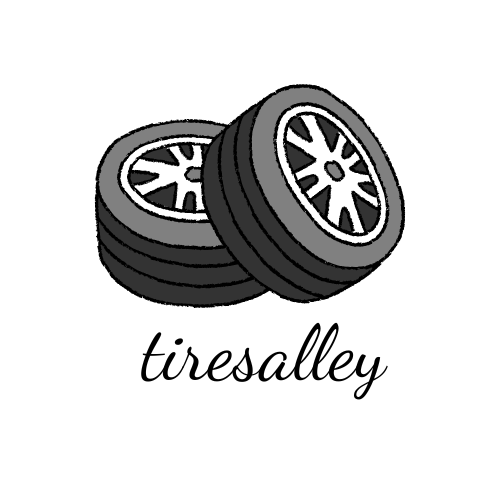Can a cracked rim cause loss of tire pressure? Rims play a critical role in the way a car works. These sturdy rings hold our tires in place, but sometimes, we overlook their maintenance. That’s a shame because they are the ones who make sure that our ride is safe and smooth. But what happens when these reliable parts crack? Can it lead to a loss of tire pressure and cause trouble for us drivers?
In this article, I want to go through potential threats that cracks can cause for pressure and overall performance.
![Can a cracked rim cause loss of tire pressure? [2 effects] can a cracked rim cause loss of tire pressure](https://tiresalley.com/wp-content/uploads/2024/04/tiresalley-25.jpg)
Can a cracked rim cause a tire pressure loss?
When we talk about the wheels of our cars, even small cracks or tire sidewall missing can do significant damage. But can a crack truly lead to a loss of pressure? The short answer is yes, and here’s why.
![Can a cracked rim cause loss of tire pressure? [2 effects] tiresalley 26](https://tiresalley.com/wp-content/uploads/2024/04/tiresalley-26.jpg)
Effect 1
You probably know that we usually have an aluminum alloy wheel or a steel wheel. When you drive your vehicle, the rim is under immense pressure, both with aluminum wheels and steel wheels.
I am sure you’ve noticed that with time, the rim’s surface of your alloy wheel or steel wheel gets small cracks. Why? Road collisions, potholes, or just wear and tear – there can be a lot of different reasons.
The problem with such a cracked alloy wheel or steel wheel is that although the cracks look tiny and harmless in the beginning, they can quickly worsen, especially if you don’t address them.
A growing crack starts impacting the structure of the wheel, compromising its structural integrity. Cracked wheels create a growing pathway for air to escape, and it leads to a gradual loss of air pressure, which means flat tires.
You and I both know that even a small decrease in pressure can have an impact on handling the steering wheel and fuel efficiency.
![Can a cracked rim cause loss of tire pressure? [2 effects] tiresalley 27](https://tiresalley.com/wp-content/uploads/2024/04/tiresalley-27.jpg)
Effect 2
If that was not bad enough, there’s more. A cracked rim can lead to alignment issues. It will influence the way your steering wheel works and ultimately your ability to vehicle control.
I believe that misaligned wheels can shorten the lifespan of your tires.
I heard about cases when a badly cracked wheel rim failed catastrophically during the drive and caused accidents on the road.
![Can a cracked rim cause loss of tire pressure? [2 effects] tiresalley 28](https://tiresalley.com/wp-content/uploads/2024/04/tiresalley-28.jpg)
I want to stress that sometimes a wheel crack isn’t immediately visible to the naked eye.
Some may be hidden beneath the surface or masked by dirt and grime.
That’s why I highly recommend checking your wheels regularly, especially after driving on rough roads or after collisions. You should identify cracks, bent rims, or pits as early as possible.
![Can a cracked rim cause loss of tire pressure? [2 effects] tiresalley 30](https://tiresalley.com/wp-content/uploads/2024/04/tiresalley-30.jpg)
Conclusion
I love to repeat the saying “A stitch in time saves nine” when it comes to maintaining your car. It couldn’t be more relevant if we talk about a wheel rim crack.
You have to be proactive here if you don’t want to lose pressure.
At first glance, a rim crack may seem like a minor issue, but it can have potentially dangerous consequences.
So, the next time you notice a cracked rim or suspect a loss of pressure, act fast. Your safety and smooth driving depend on it.
FAQ
Can a cracked rim cause tire to lose air?
Yes, a cracked rim can cause a wheel to lose air and, if unnoticed, cause extensive damage.
What happens if you drive on a cracked rim?
Driving on a cracked rim can lead to damage like loss of pressure in the wheel and potentially unsafe driving conditions.
Can a cracked rim cause a flat tire?
Yes, a cracked alloy or steel rim can cause a flat tire because the air will escape through the cracks.
Why is my tire losing pressure but no leak?
It may be losing pressure because of a cracked alloy or steel rim, which can allow air to escape without a visible leak.
Why are my tires losing pressure but no hole?
It may be happening because of temperature changes, valve stem issues, or a cracked rim even if there are no large cracks visible.

![Can a cracked rim cause loss of tire pressure? [2 effects] Can A Cracked Rim Cause Loss Of Tire Pressure: Top 2 Impacts](https://tiresalley.com/wp-content/uploads/2024/04/tiresalley-24.jpg)